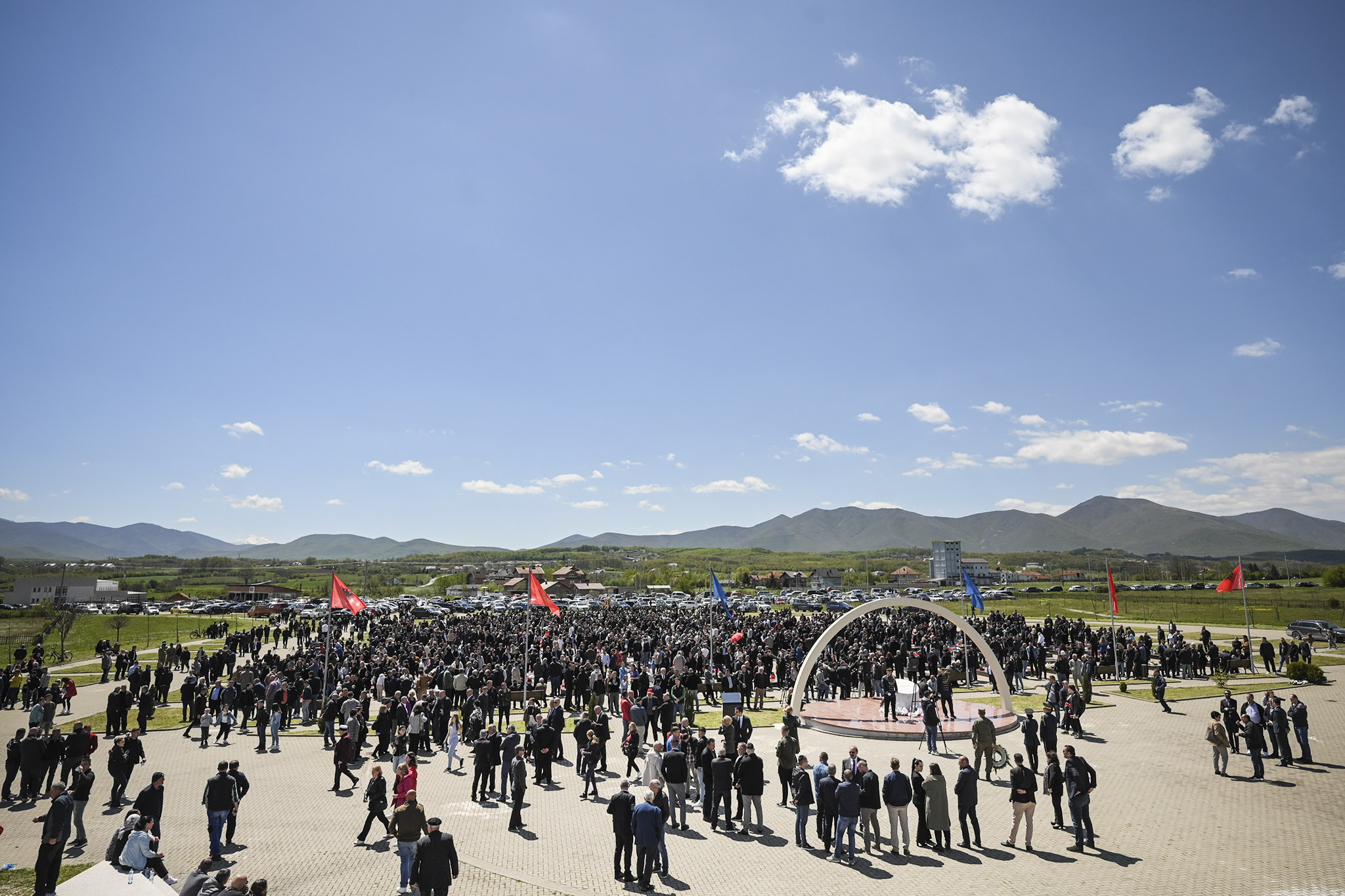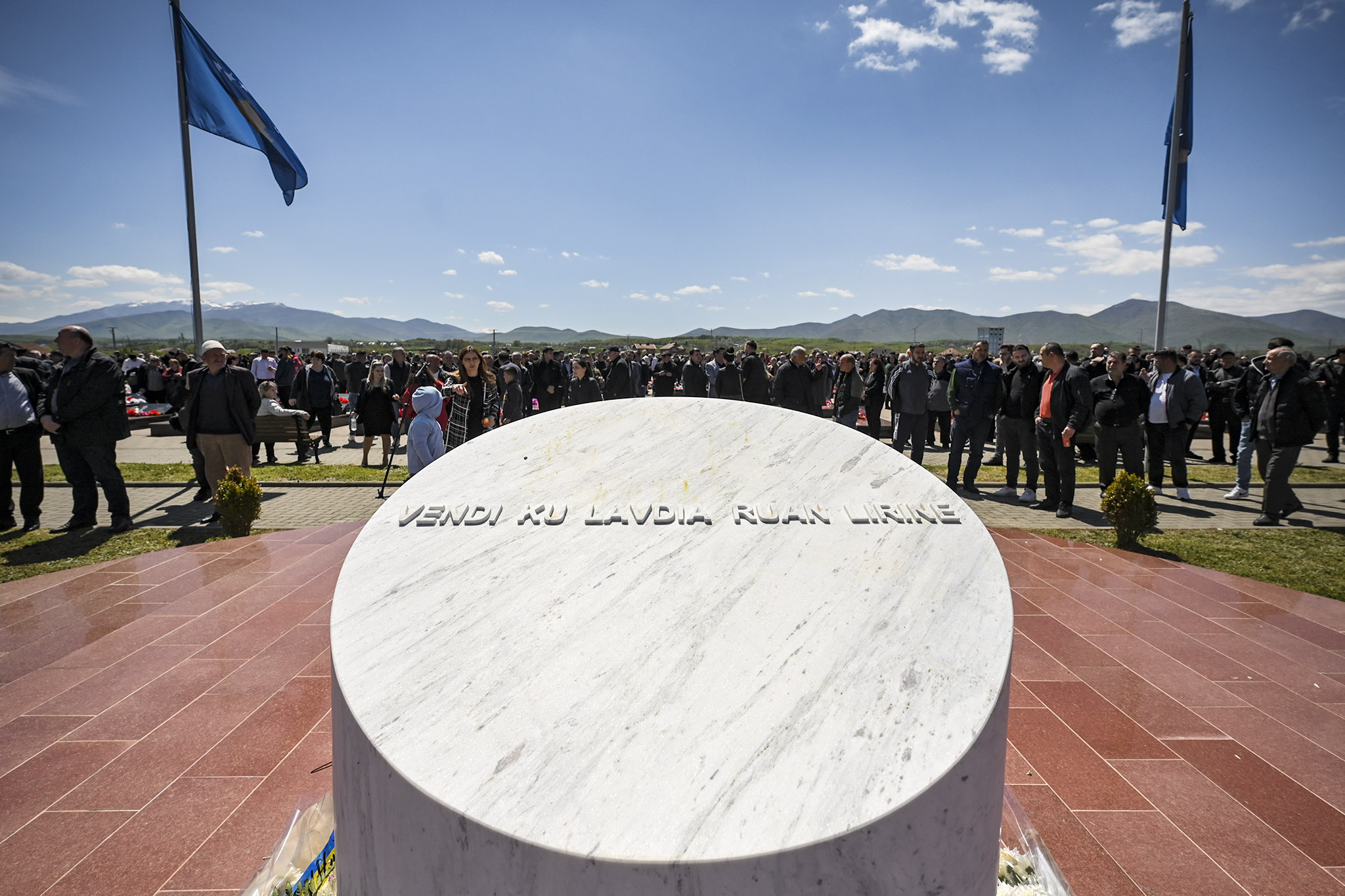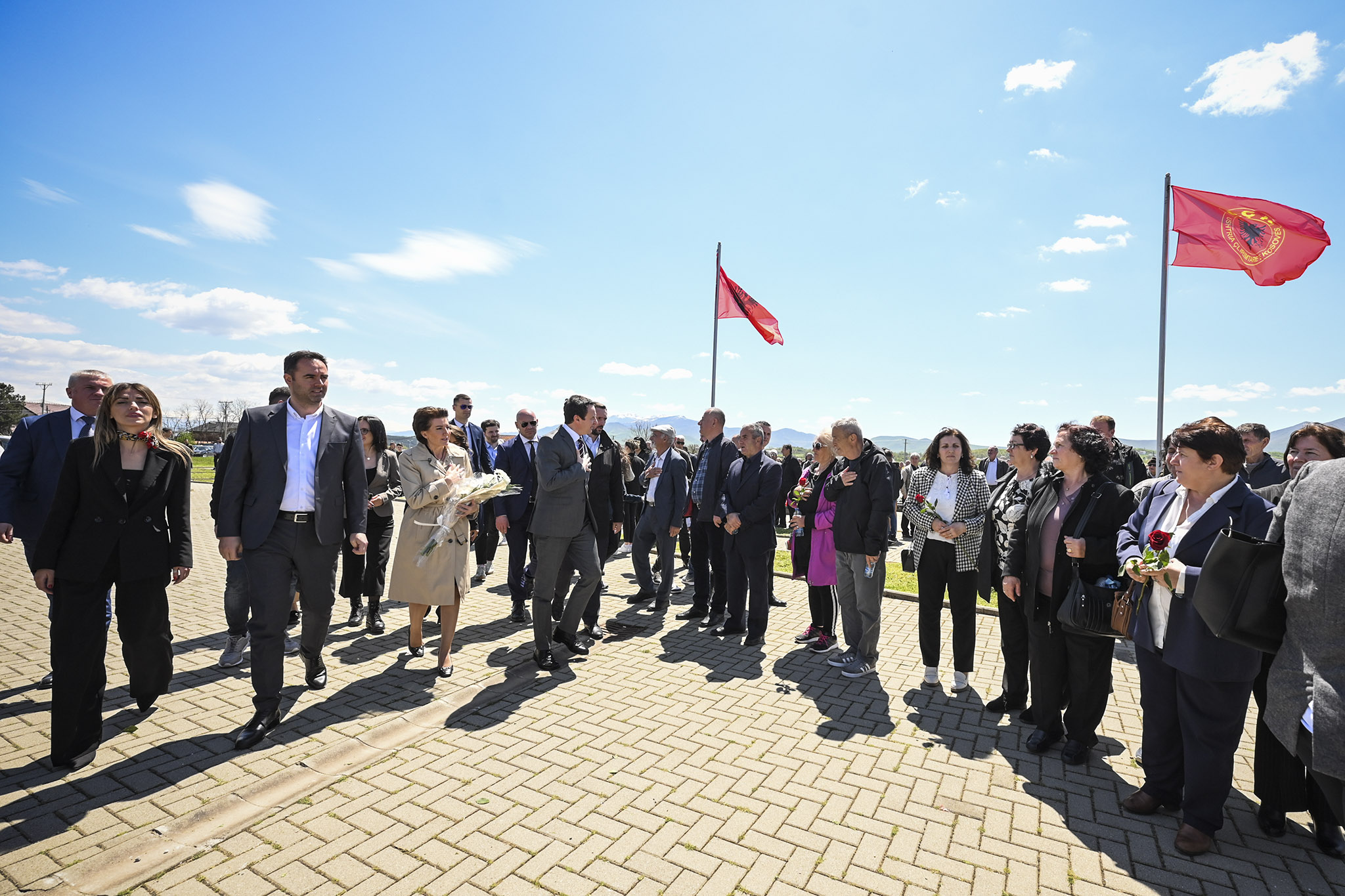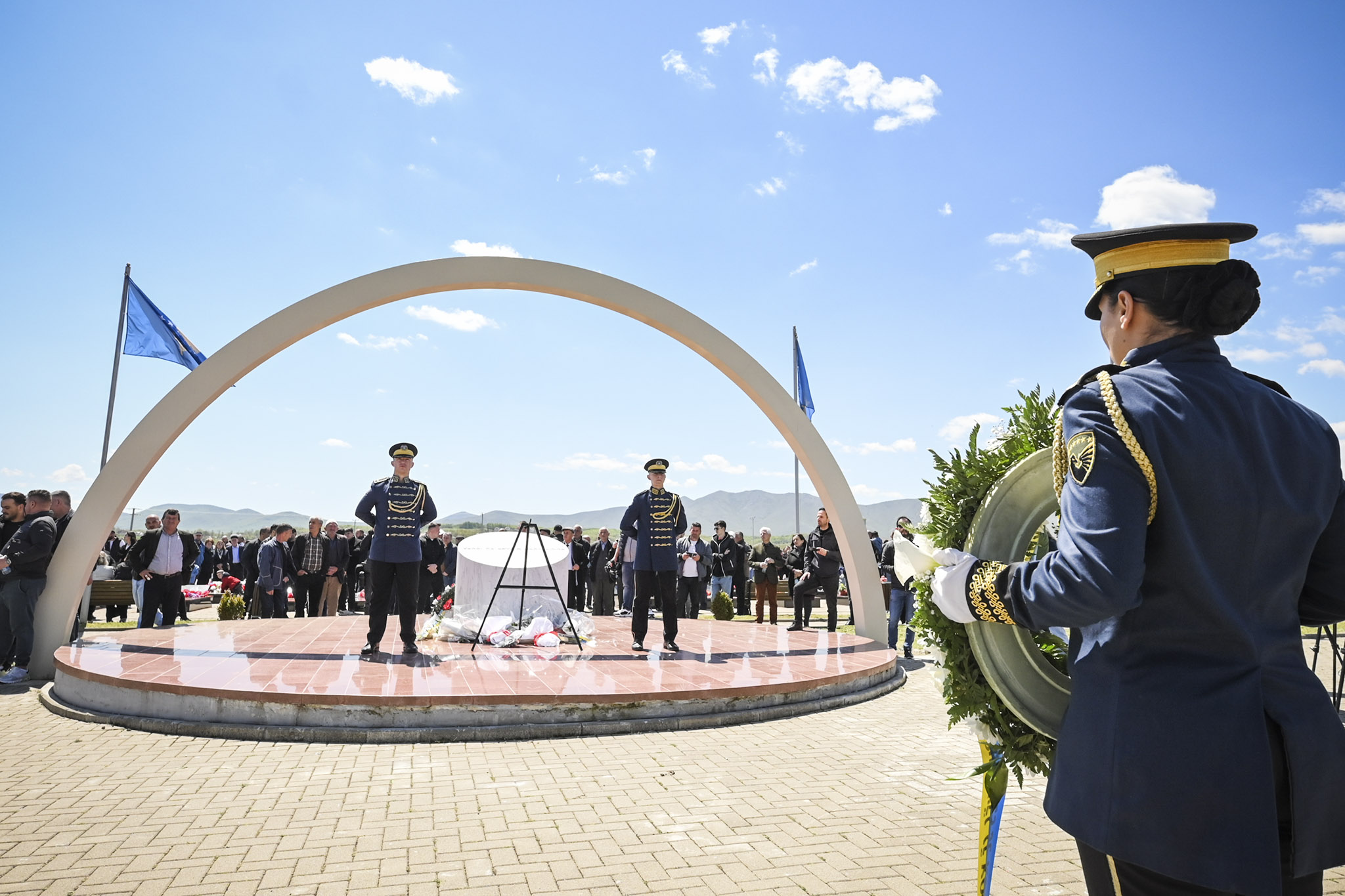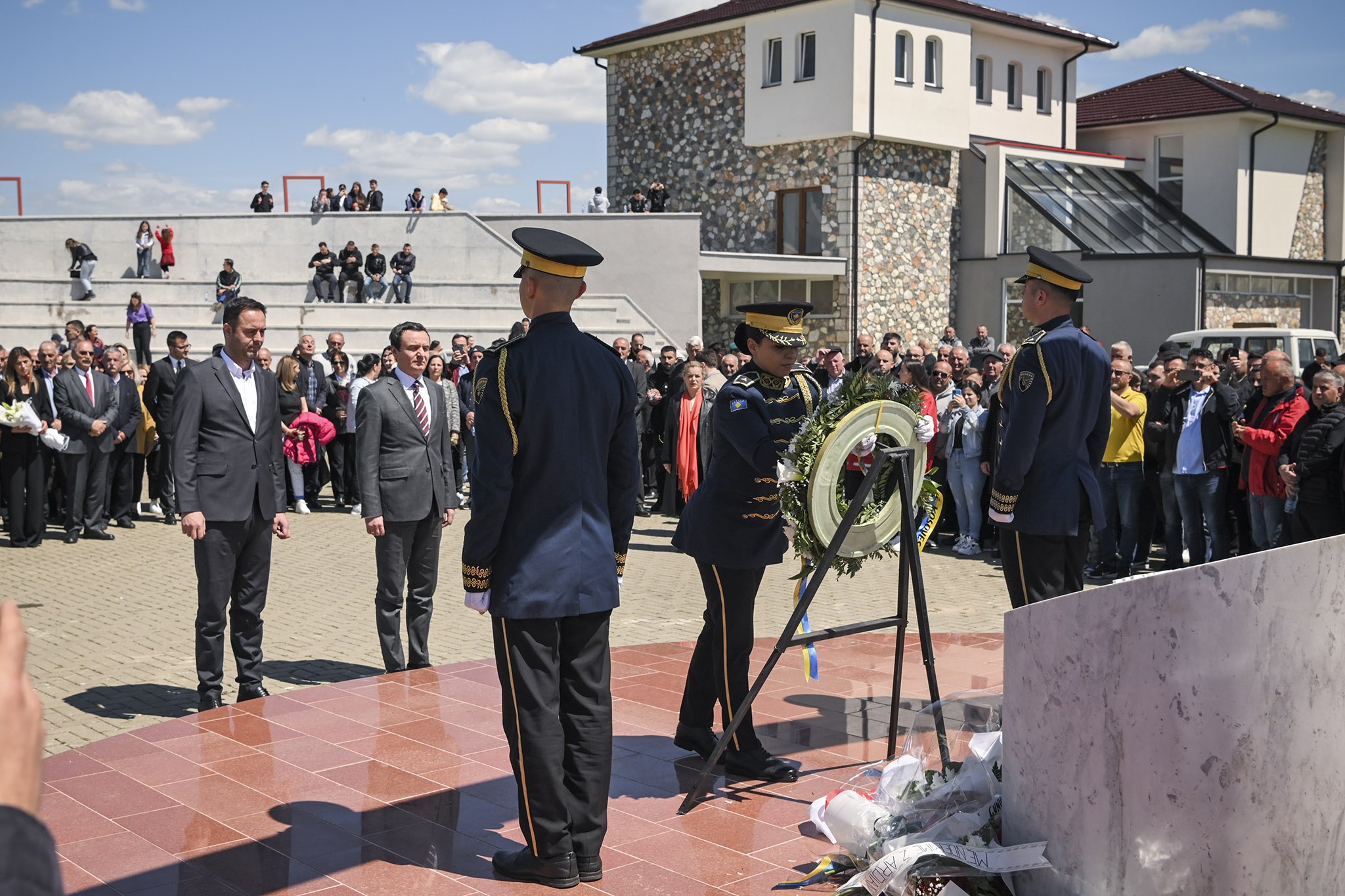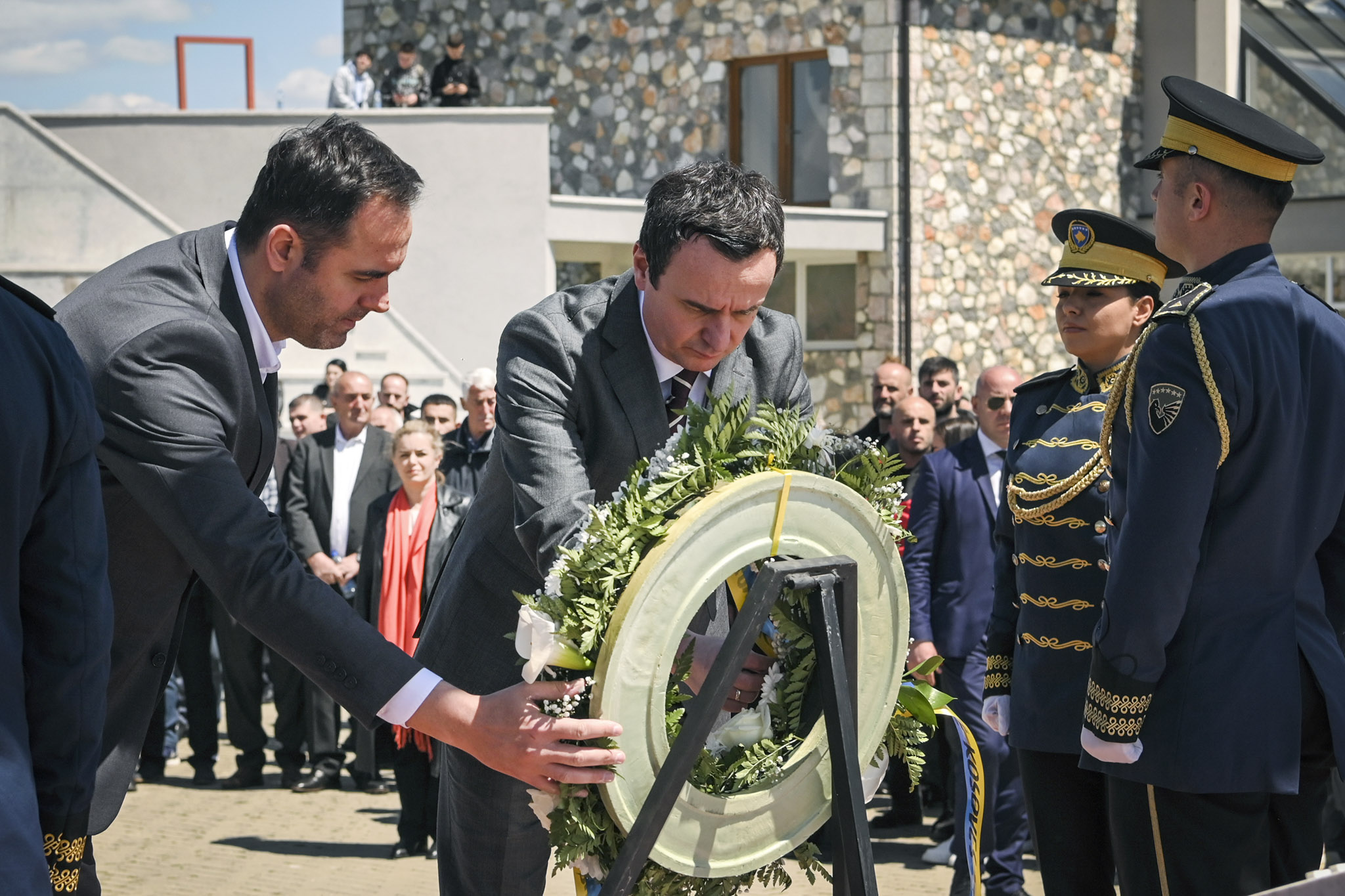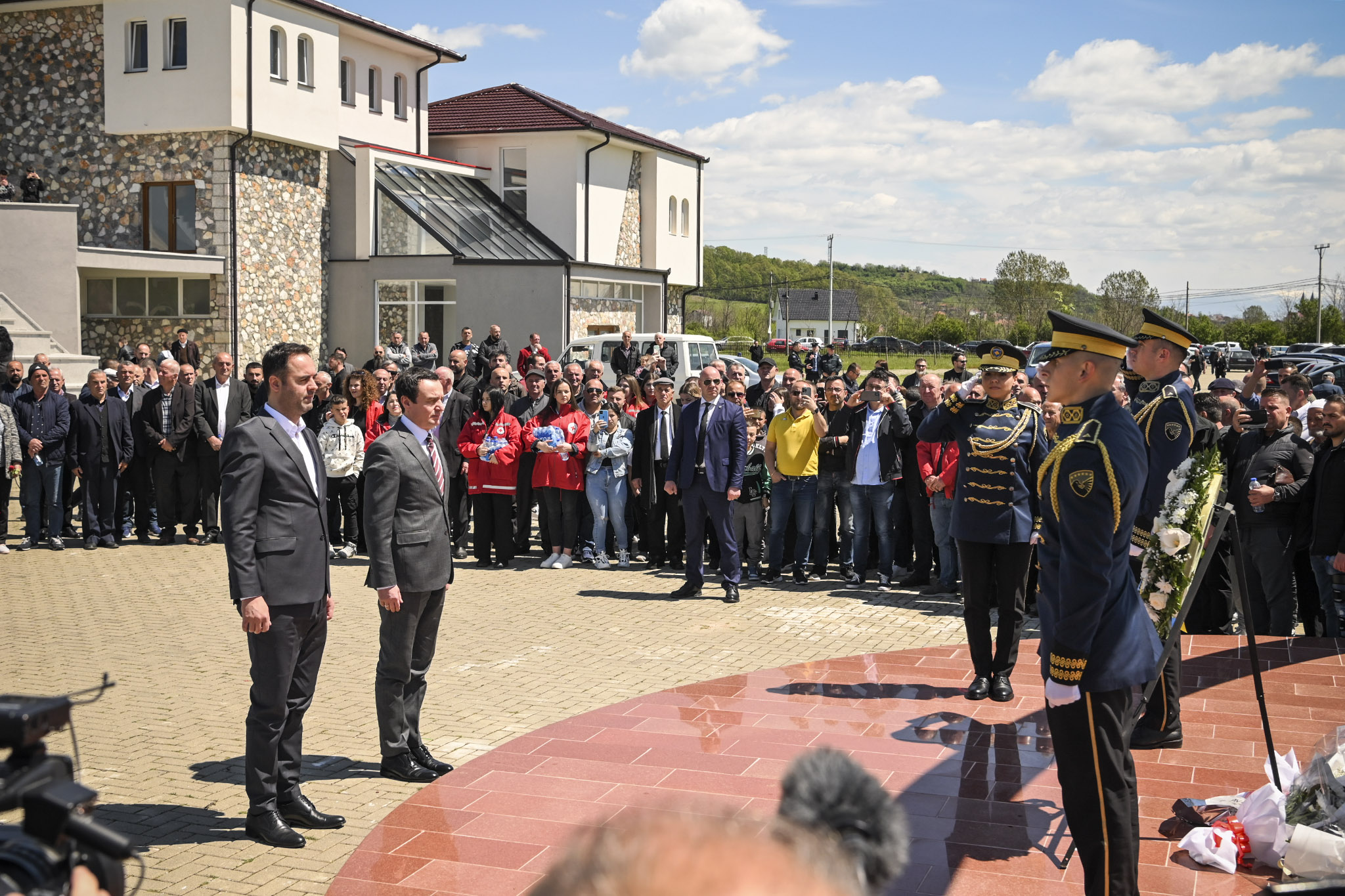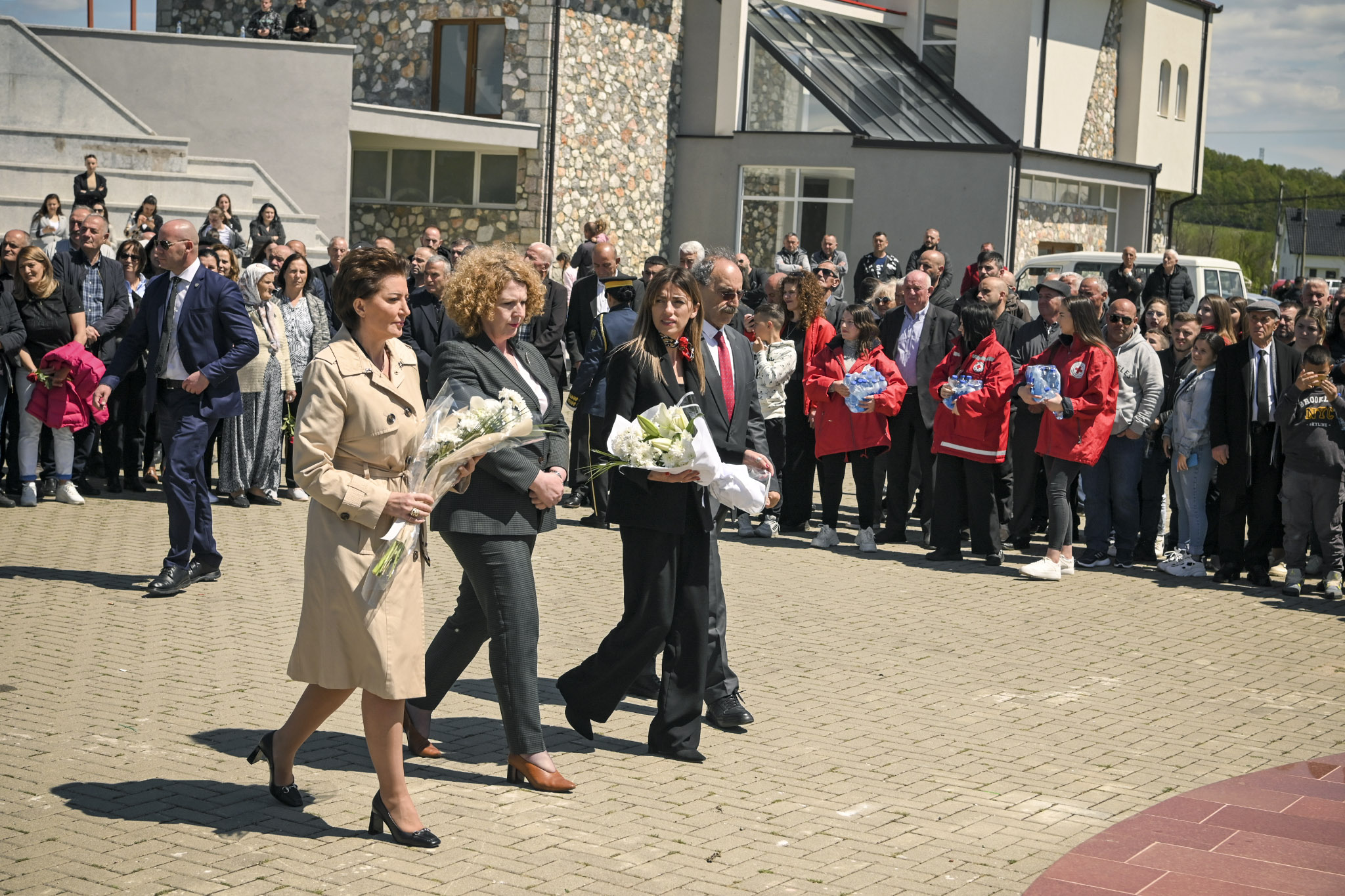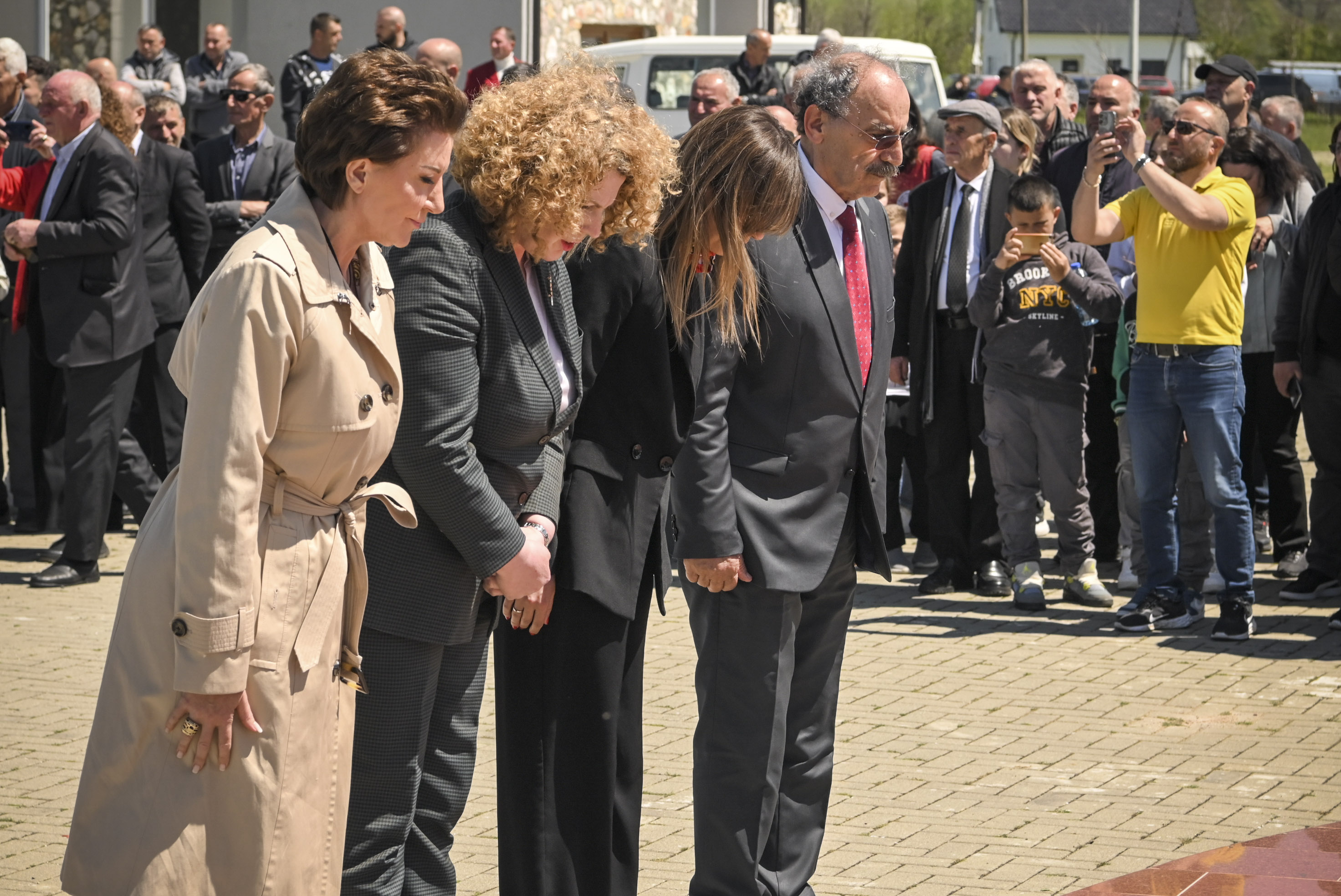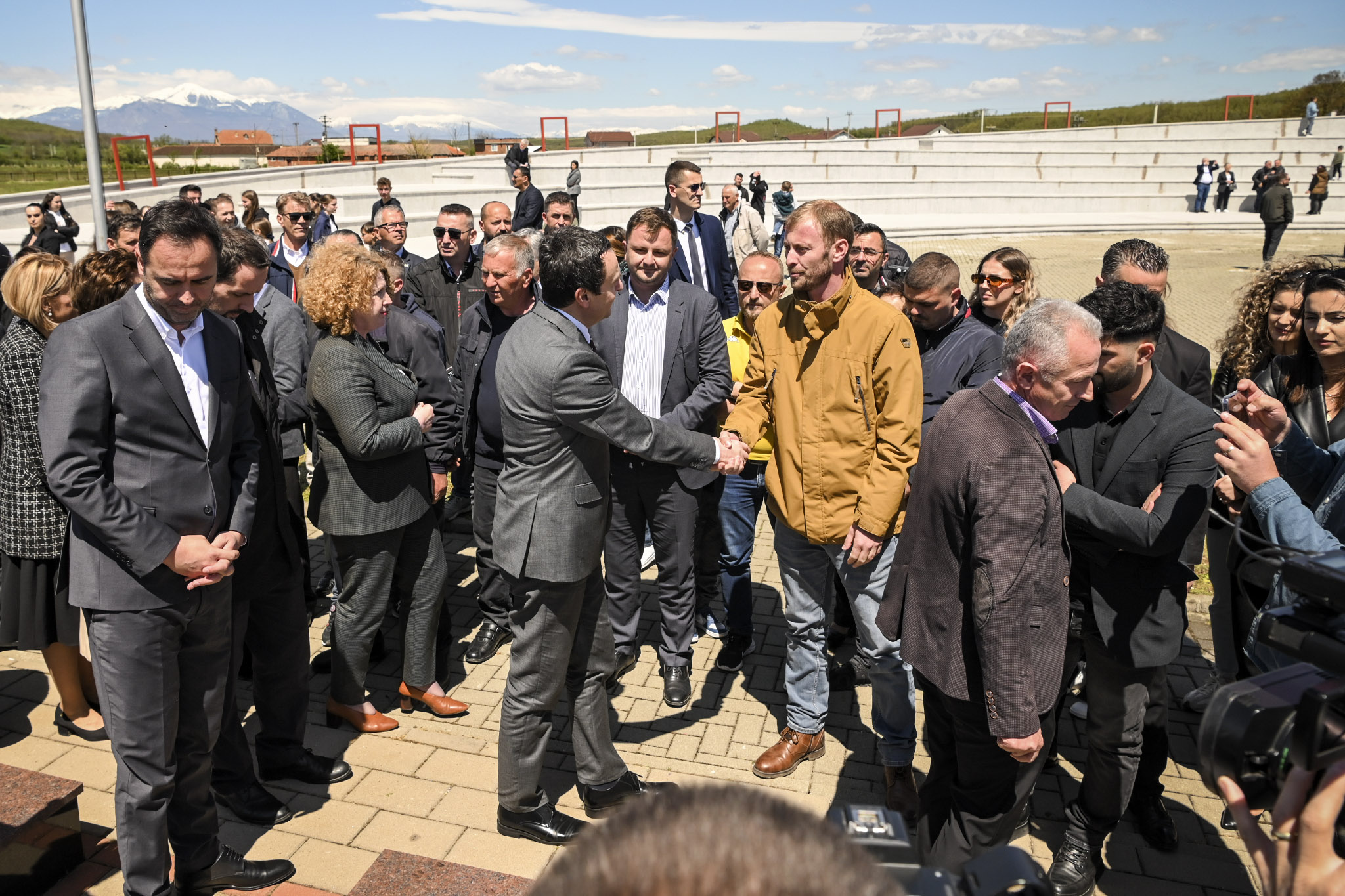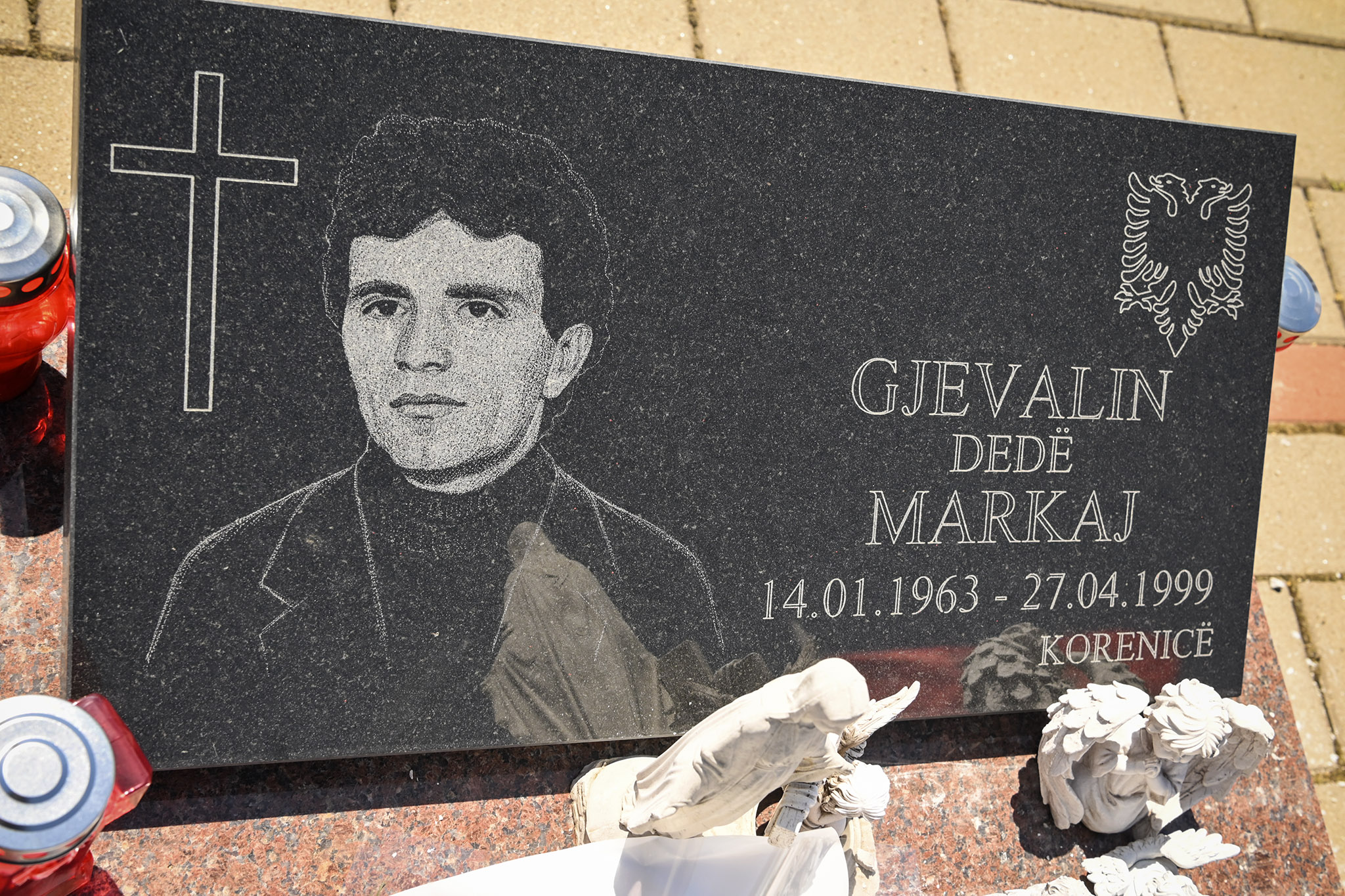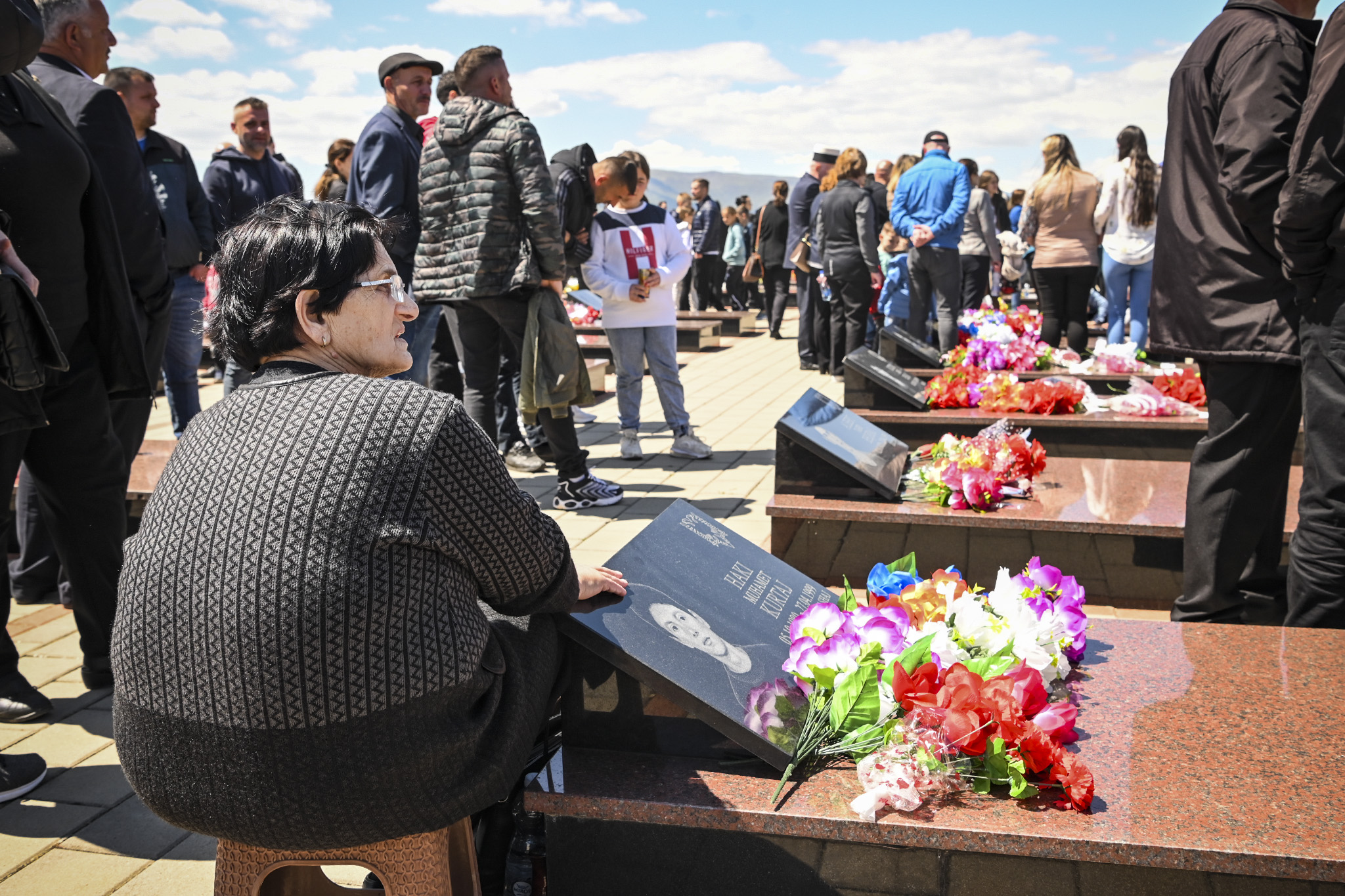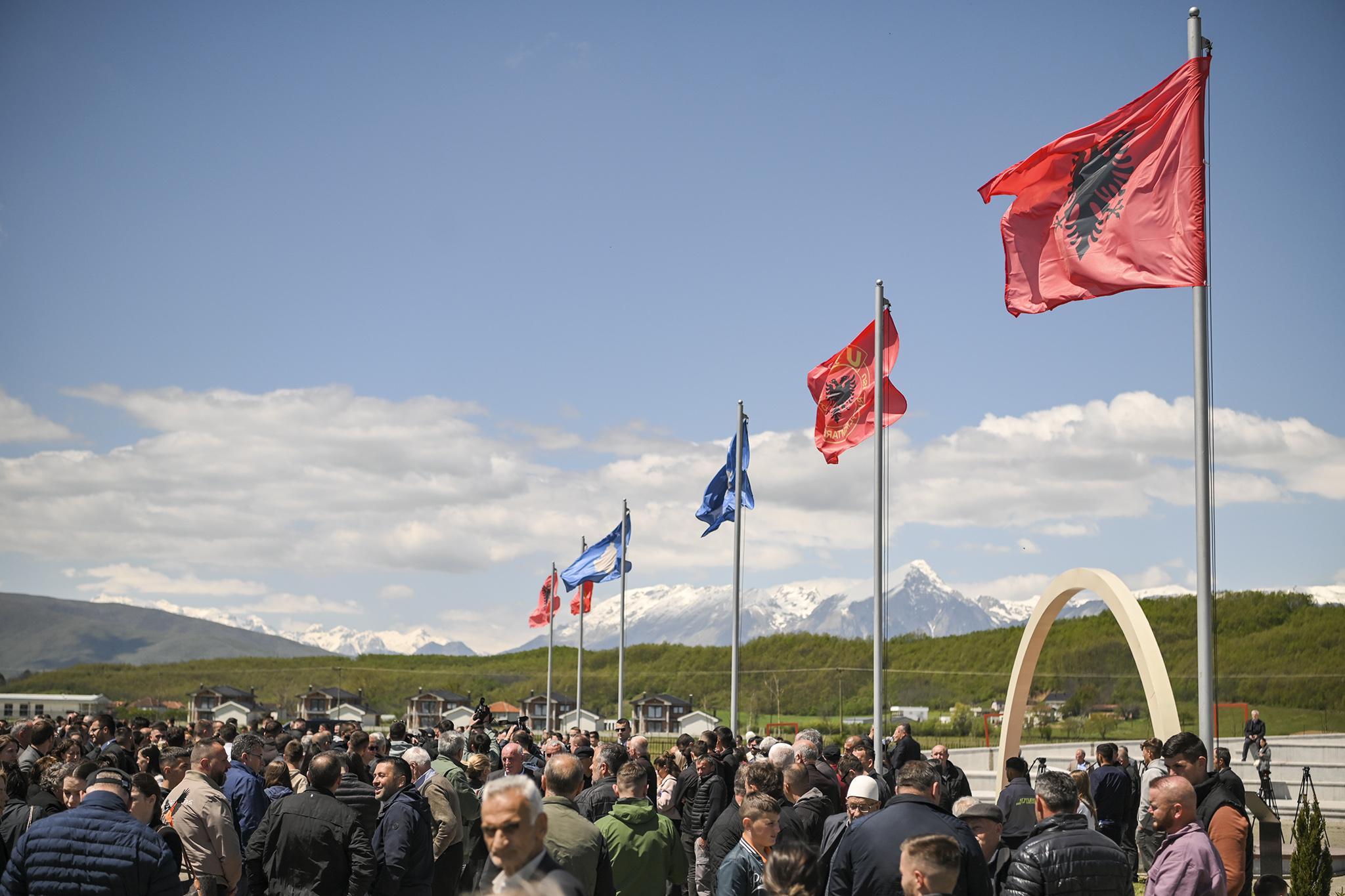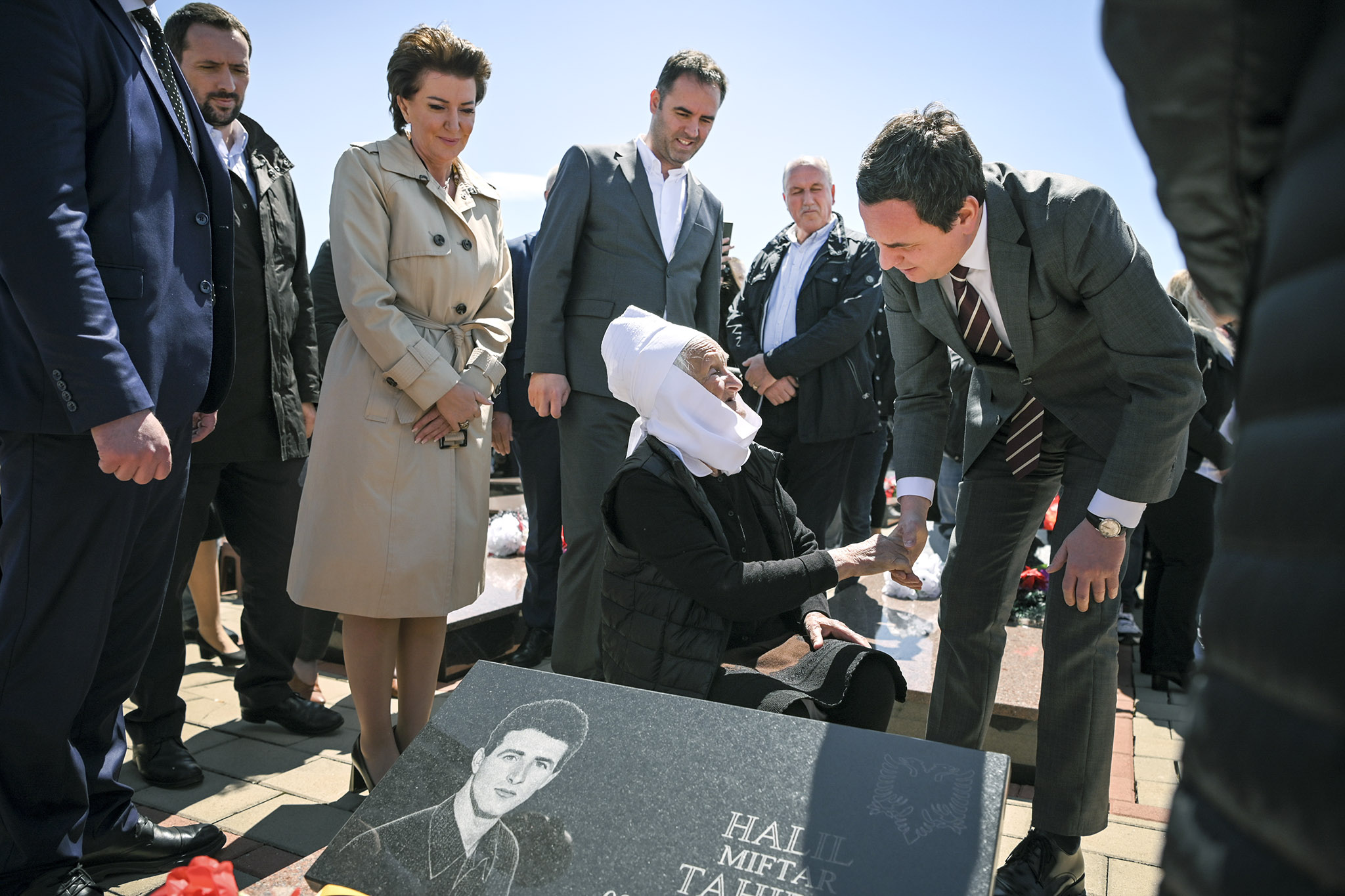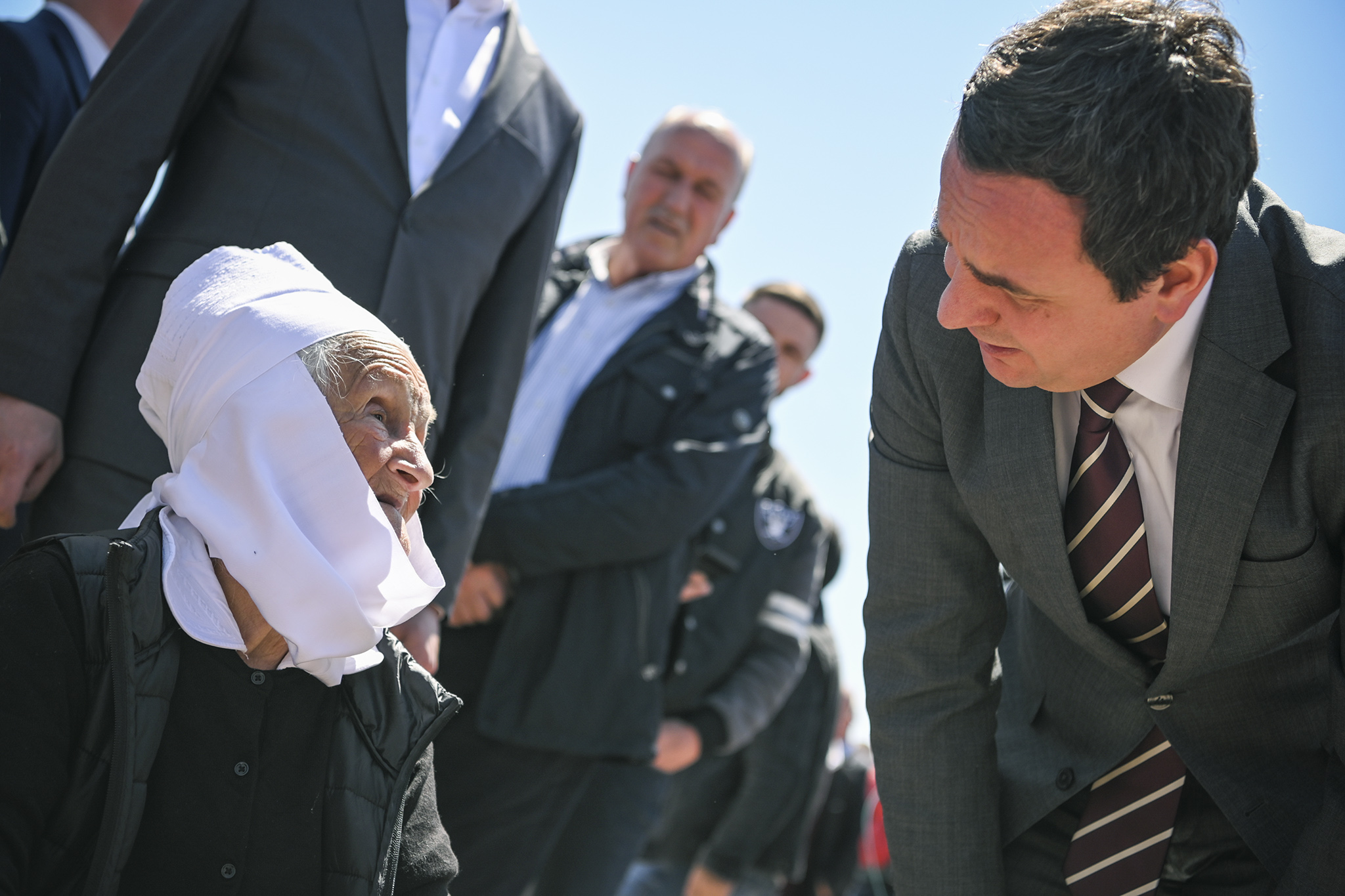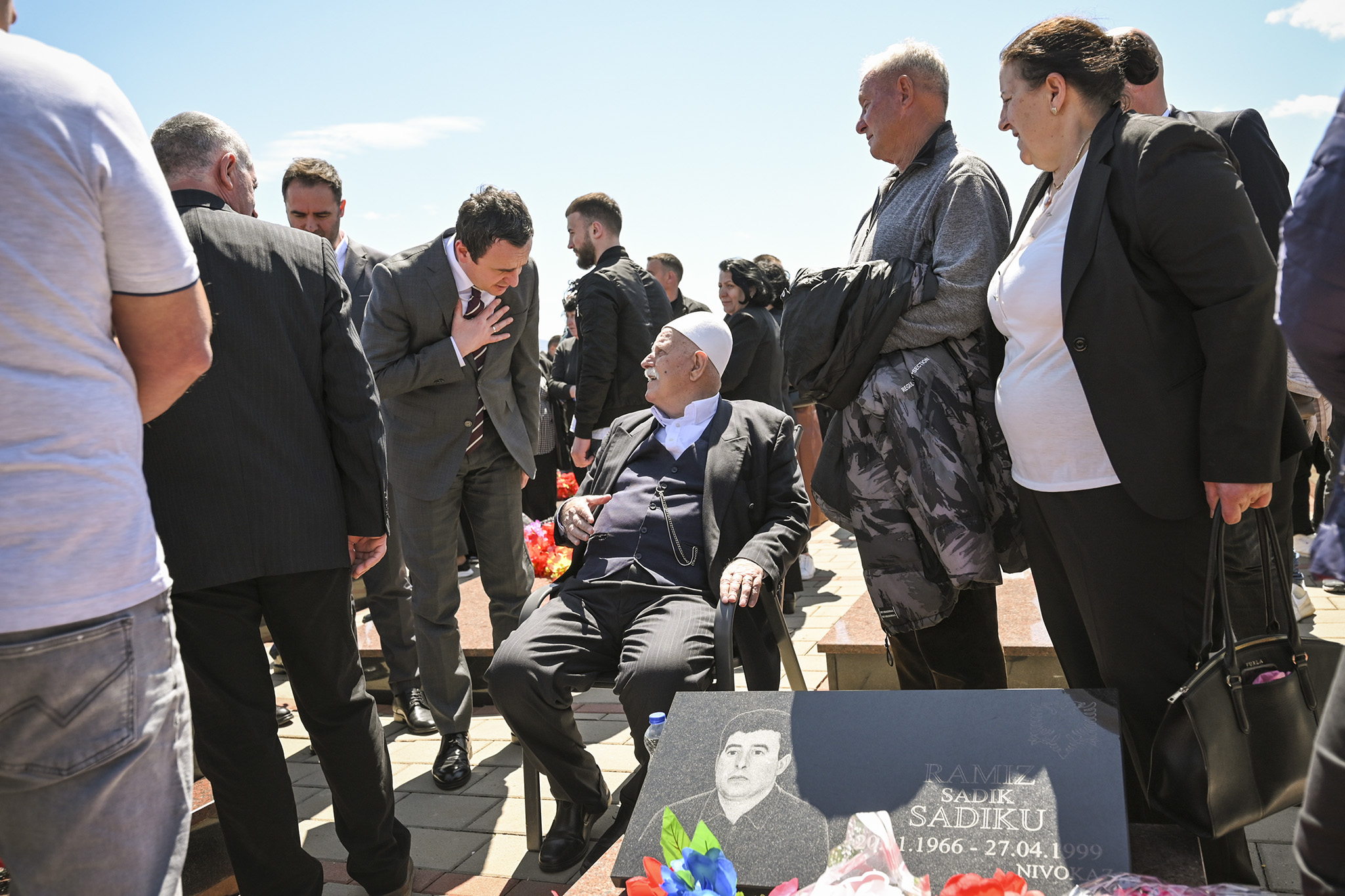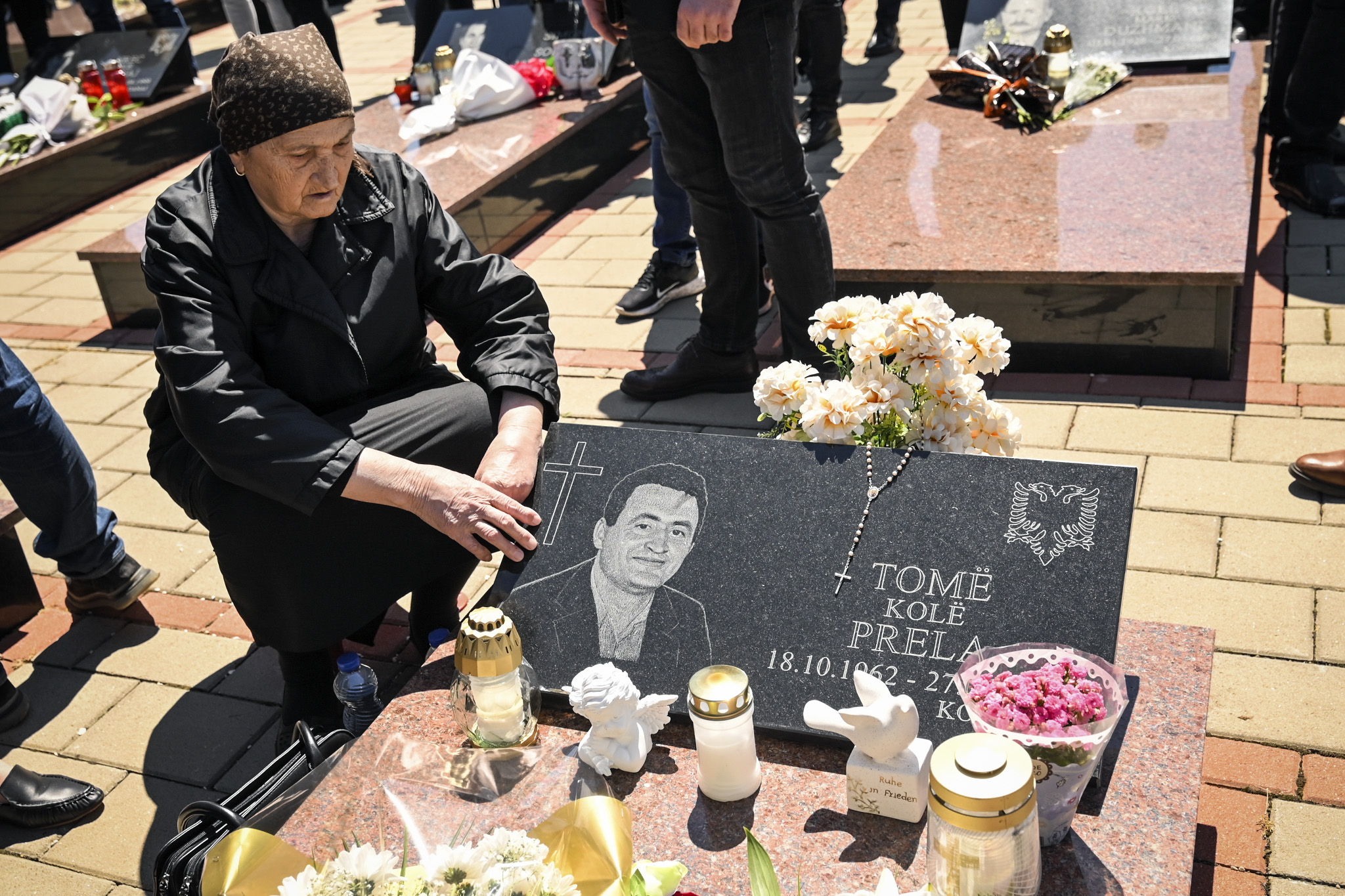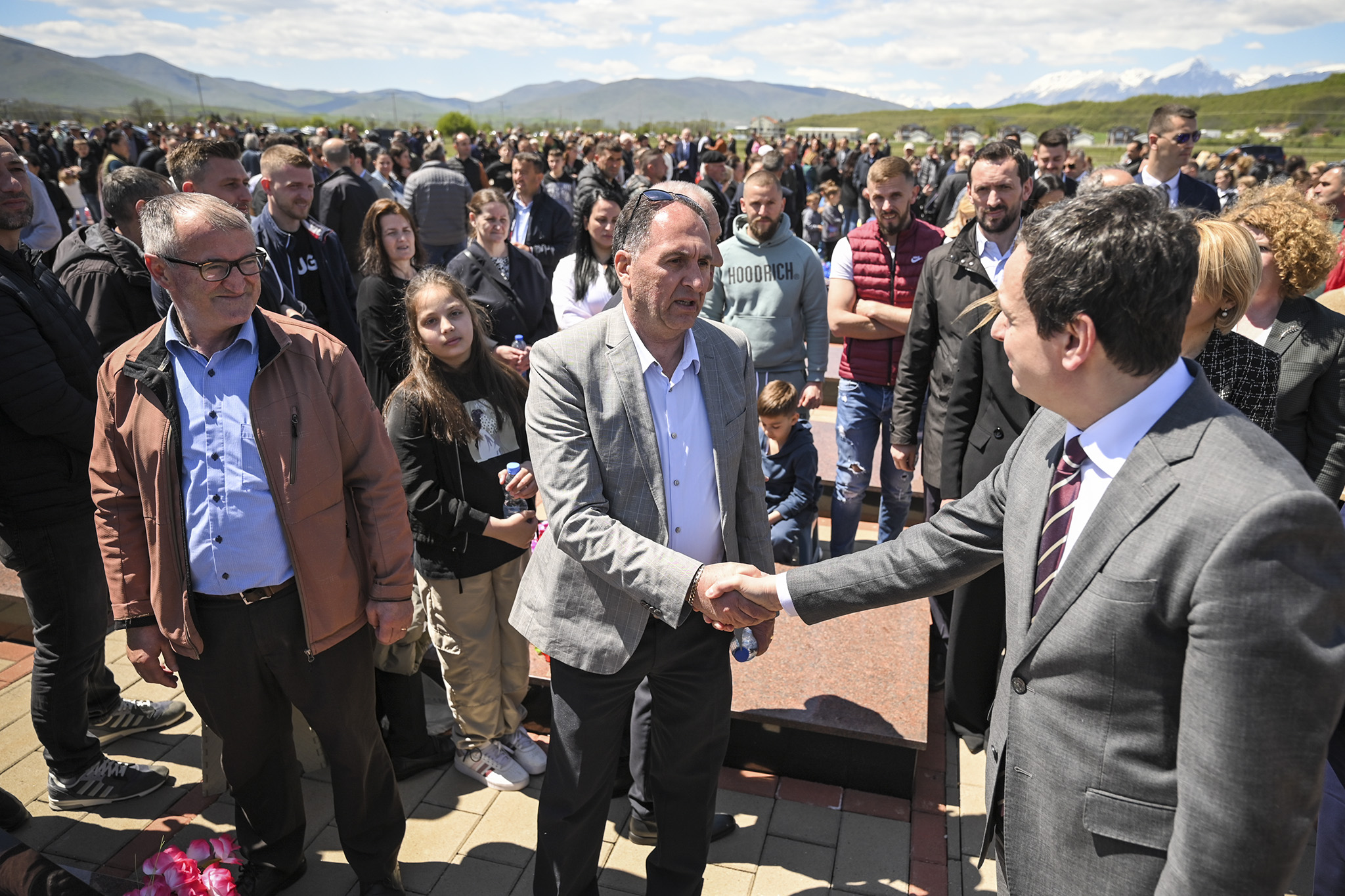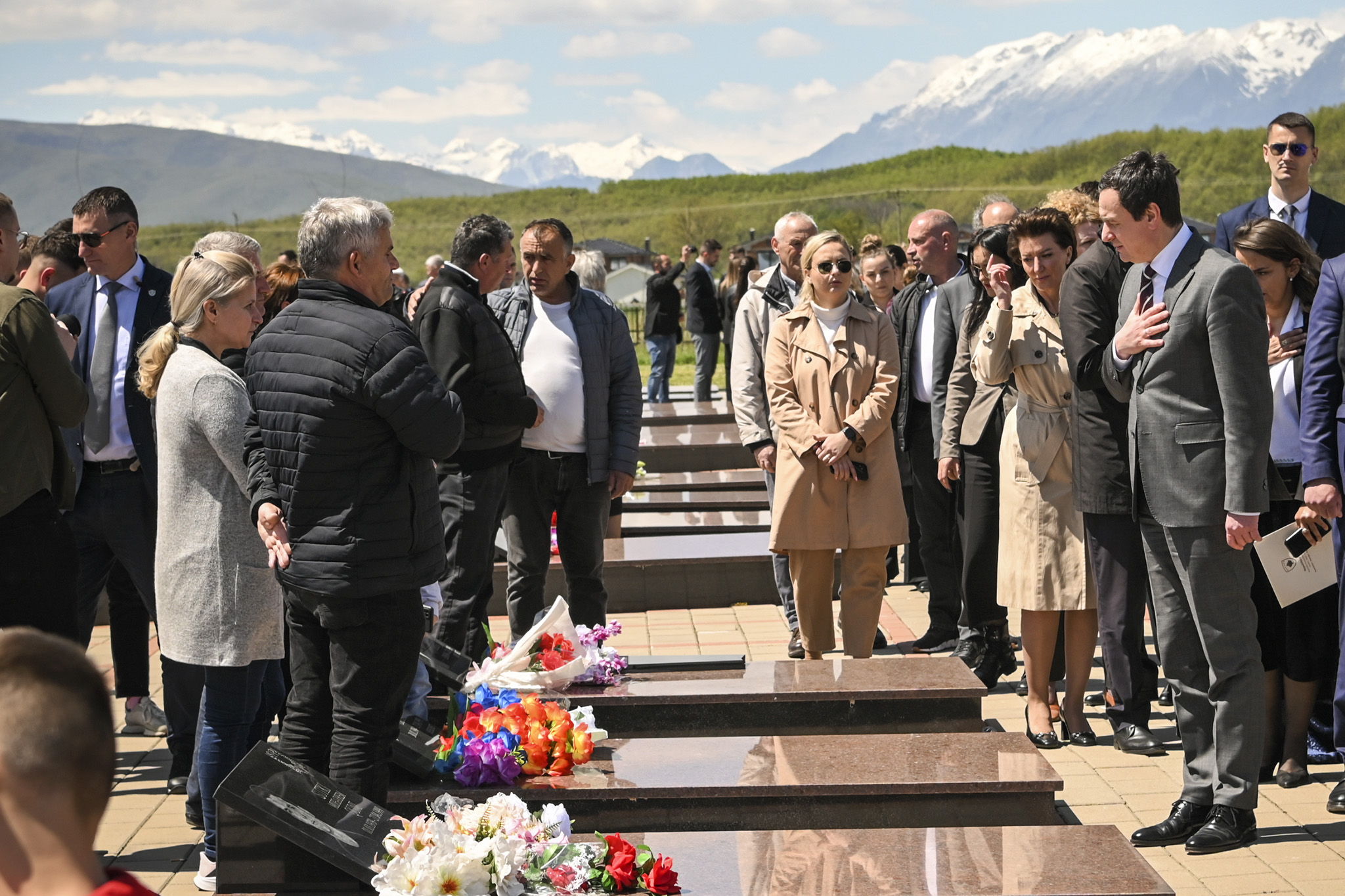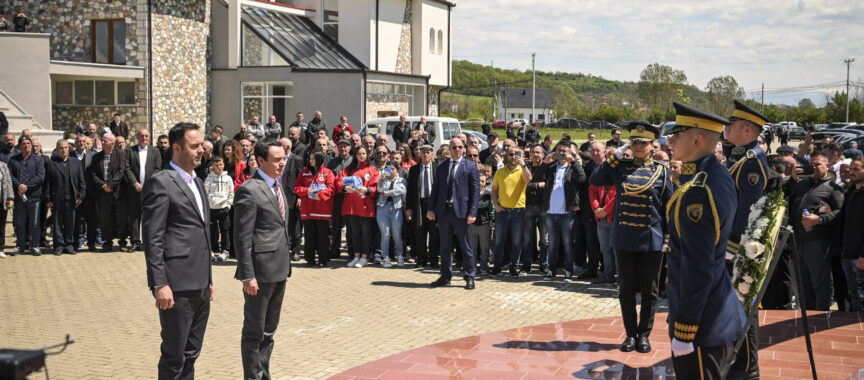Mejë, Gjakova, 27 April 2023
The Prime Minister of the Republic of Kosovo, Albin Kurti, paid tribute and laid wreaths today at the Memorial Complex in Mejë, Gjakova, in honour of all those killed in the Mejë Massacre, 24 years ago.
Prime Minister Kurti expressed his pain and sorrow but also his deep gratitude to the mothers, sisters, fathers, brothers, children, grandfathers, grandmothers of those who were killed in this massacre.
“24 years later, we still have no justice and we still have no rehabilitation for the families of the victims and our entire people,” said Prime Minister Kurti.
The Prime Minister said that there are 11 students and 20 teachers among those killed in Mejë, having Albanians murdered regardless of age, gender, origin, or religion. Here, the Prime Minister said, inter alia, you see the graves of Muslims and Catholics together just because they were Albanians.
The Prime Minister further added that the Albanians were together in the liberation war, but they were killed together by the Serbia’s genocidal forces and now we remember them with longing and pain as martyrs of our nation.
We do not treat this as a matter of history, but as a matter of our broken lives, although all these young men and women, children killed, today would have their families, today they would continue their lives and enjoyed freedom, which has its roots in the blood and sacrifice of the nation’s martyrs, the Prime Minister emphasized.
Underlining the Government’s commitment to justice and truth, the Prime Minister singled out the Government’s decision to join the International Commission on Missing Persons (ICMP), so that we can take steps towards clarifying the fate of the missing persons before this important international organization.
19 police officers operating within the Serious Crimes Investigation sector of the Kosovo Police handled war crime cases in the past. Under the new structure already approved, this sector is upgraded the level of the War Crimes Investigation Directorate and there will be 41 investigators, the Prime Minister announced.
He also mentioned the increase in the budget for the Prosecution Office, adding 4 prosecutors, 6 professional associates and two translators for war crimes cases and 50 new positions for the Kosovo Prosecutorial Council and the Kosovo Judicial Council.
Prime Minister Kurti was accompanied by the Speaker of the Assembly, Glauk Konjufca, ministers Albulena Haxhiu, Rozeta Hajdari and Arbërie Nagavci, MPs and other institutional representatives.
Prime Minister Kurti’s full statement:
We came here jointly with the Speaker of the Assembly of the Republic and MPs and ministers to share the pain and sorrow, but also to express our deep gratitude to the mothers, sisters, fathers, brothers, children and grandparents, who were cruelly killed by the Milosevic’s genocidal regime 24 years ago. 24 years later, we still have no justice and we still have no rehabilitation for the families of the victims and our entire people.
Yesterday, at the Government meeting, we initiated the accession to ICMP, namely the International Commission on Missing Persons, and it will be ratified by the Assembly of the Republic, so that we can take steps before this important international organization towards clarifying the fate of the missing person, of those who disappeared by force, who were kidnapped by force, seeking both the truth and liability, namely justice. In past years, only a sector within the Serious Crimes Directorate was conducting investigations into the crimes committed during the war, while now we have made it a separate directorate within the Kosovo Police, which should address, investigate, research and detect crimes committed during the war and enable the capture of criminals, while increasing at the same time the number of officers from 19 to 41. Hence, it is more than doubling, more precisely, it is over 115 percent increase in the number of investigation officers in the Kosovo Police, which from a sector within the Serious Crimes Investigation Directorate is now upgraded to a special directorate for the investigation of crimes committed during the war.
We have also increased the budget for the Prosecution Office, adding 4 prosecutors, 6 professional associates and two translators and 50 new positions for the Kosovo Prosecutorial Council and the Kosovo Judicial Council.
There are 11 students and 20 teachers among those killed in Mejë, having Albanians murdered regardless of age, gender, origin, or religion. Here, you see the graves of Muslims and Catholics together just because they were Albanians.
Albanians were together in the liberation war, but they were killed together by the Serbia’s genocidal forces and now we remember them with longing and pain as martyrs of our nation.
In the Assembly of the Republic, we have already passed in the first reading the Draft Law on the Institute for the Documentation and Research of Crimes Committed During the War, which is due to pass the second reading. Meanwhile, the National Strategy for Transitional Justice will also be brought for public discussion.
The state institutions and the justice mechanisms of the Republic must prove themselves first and foremost especially in the cases of crimes committed during the war, because time is passing and the witnesses of these events are getting old and many of them are passing away and, also the material facts and substantive evidence are becoming obsolete and it will be even more difficult to preserve and conserve them.
Over 950 Albanians were exhumed from 5 mass graves in Serbia, 744 of them only in Batajnica on the outskirts of Belgrade, where they held a military parade last Saturday to continue threats to the regional peace and security.
We therefore ask for the persistence and activity and efficiency of our justice system, but also for international support for these unresolved and untreated crimes that require answers as soon as possible, because the anxiety is greater than the grief, and even the anger not only of family members is greater than the mourning, than the tears, that you see in this place here, that refuses to forget.
We do not treat this as a matter of history, but as a matter of our broken lives, although all these young men and women, children killed, today would have their families, today they would continue their lives and enjoyed freedom, which has its roots in the blood and sacrifice of the nation’s martyrs.
Last modified: May 2, 2023
